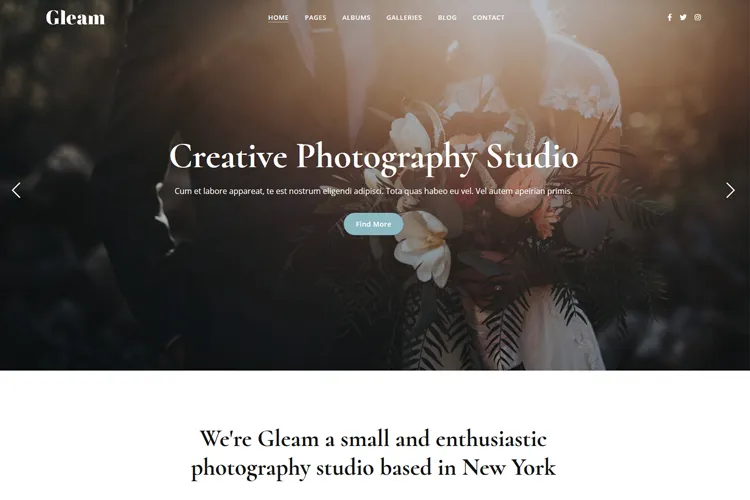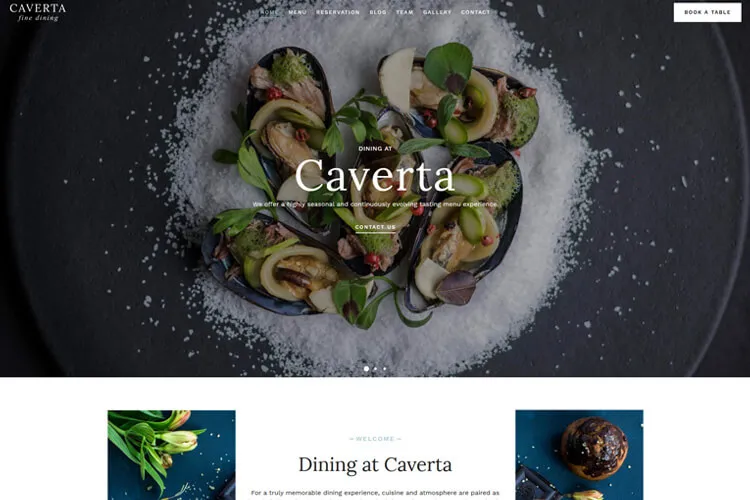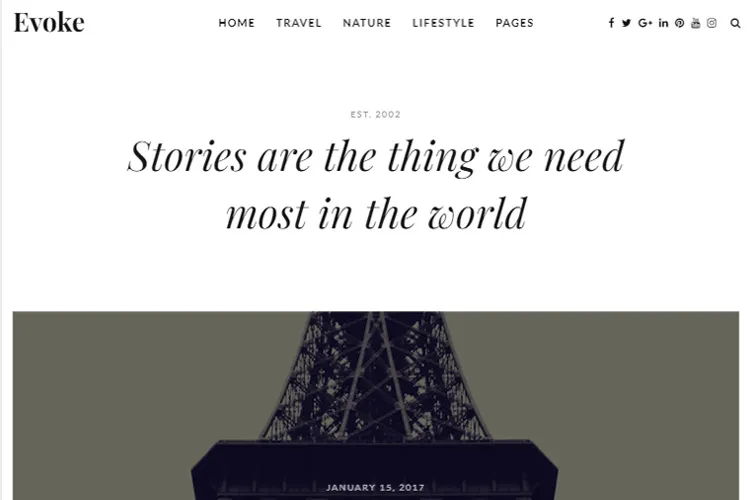WordPress never sleeps and the July 2025 MatchThemes WordPress Roundup proves it. This month’s recap lands you right in the thick of all things WP, from massive security shakeups to the first wave of AI-powered tools. With everything from speculative loading making sites faster on the fly to a new AI team uniting minds from Google, Automattic, and more, WordPress is firing on all cylinders.
If you want to keep your WordPress site at the top of its game, this is your playlist for the latest must-watch trends. Get the lowdown on the fastest performance upgrades, smarter content workflows, and how all these changes are reshaping the ecosystem for creators, devs, and power users. By the end of this roundup, you’ll know exactly what to update, experiment with, and keep an eye on – so your site doesn’t just keep up, it leads. WordPress isn’t standing still, and neither should you.
Consultus Architecture Website Layout

We’re excited to introduce the new Consultus Architecture website layout, a fresh addition to the Consultus WordPress theme lineup. Designed with architecture firms, design studios, and modern creatives in mind, this layout combines clean, minimalist lines with gallery-forward sections that truly let your projects shine. The home page features bold portfolio showcases, about us section, and eye-catching client testimonials to help you establish authority and attract new clients from the very first glance.
Created with Elementor for effortless drag-and-drop editing, the Architecture demo also includes dedicated pages for services, project case studies, about, and contact. It’s fully responsive, SEO optimized, and built for speed, ensuring your work looks stunning on every device With easy tweaks for branding, colors, and layout, it’s the ideal starting point for studios wanting to launch an impressive web presence in minutes. The Consultus Architecture layout is another standout demo that expands the theme’s versatility for professional service businesses seeking elegance and functionality in equal measure.
WordPress 6.8.2 Drops with Performance and UI Fixes
WordPress 6.8.2 officially landed on July 15, delivering a stack of highly requested performance and UI improvements. This release focuses on refining the site-building experience, introducing customizable social icons for greater branding flexibility and rolling out upgrades to the Interactivity API, enabling developers to craft even more dynamic, app-like user interfaces. One of the most notable features is the smarter plugin rollout logic, designed to prevent compatibility issues by staggering updates – making the update process smoother and more reliable for site owners.
A true highlight of WordPress 6.8.2 is the introduction of speculative loading technology. With this feature, site pages start loading in the background before visitors even click a link, slashing perceived wait times and making browsing feel almost instant. For WordPress users and developers, this is a game changer for site speed and overall user experience – helping sites feel snappier without extra optimization work. Together, these improvements in WordPress 6.8.2 show a strong push toward both usability and cutting-edge performance, ensuring sites stay competitive and welcoming for a wide audience.
Angie AI engine from Elementor
Angie: AI plugin for WordPress

Elementor’s Angie AI engine sets a new standard for what’s possible with AI in WordPress. Instead of just making suggestions, Angie actually takes action – building pages, updating content, and publishing changes right inside your website. You just describe what you want done, and Angie does it for you, skipping all the usual technical hurdles. It’s built to seamlessly work with Elementor, WordPress, Gutenberg, WooCommerce, and ACF, so you can automate real tasks without reconfiguring your stack or switching tools.
Angie stands out because it reacts to your needs in real time. Launch a sale, add inventory, create new blog posts, or update existing content – Angie handles these jobs through simple prompts, allowing website owners and teams to move much faster. With early access now open, Elementor is putting powerful, agentic AI tools into the hands of everyday users, helping them shape how WordPress sites are built and managed for years to come.
WordPress Data Liberation Project
WordPress Data Liberation Project
The WordPress Data Liberation Project is gaining real momentum in 2025, setting out to solve one of the biggest headaches for site owners: moving content from closed platforms like Wix and Squarespace into WordPress with minimal friction. The project’s vision is all about putting ownership and flexibility back in users’ hands, making sure your data isn’t trapped and switching platforms is as easy as a few clicks. Currently, prototype importers for platforms like Wix and Squarespace are in active development, and public testing is targeted before autumn – marking a major leap forward for website migration and digital freedom.
The Data Liberation team is building official importer tools, streamlining plugin reviews for contributors, and focusing on offering detailed migration guides. The ultimate goal is to let anyone transition their site content – and even design elements or structured data – into WordPress smoothly, whether they’re a blogger, business owner, or agency. Expect early public testers to get hands-on with these tools soon, making the move from Wix or Squarespace to WordPress less daunting and far more accessible than ever before.
AIOSEO AI Content Generator
AIOSEO has rolled out a powerful new AI Content Generator for WordPress users, designed to speed up and simplify high-quality content creation right inside your WordPress dashboard. With this feature, you can instantly generate optimized FAQs, key points, SEO titles, meta descriptions, and social media posts – all with just a few clicks and no need to toggle between different tools.
Available to both Lite and Pro users, the AI Content Generator runs on a flexible credit system and is easy to activate through the AIOSEO settings. Users can leverage this tool to create and promote search-friendly content efficiently and improve their site’s visibility across the web.
Malware Discovered In Gravity Forms WordPress Plugin
Malware Discovered In Gravity Forms WordPress Plugin
A serious supply chain attack recently targeted the popular Gravity Forms WordPress plugin, leading to the discovery of malware injected into the plugin’s code. Attackers uploaded an infected version directly to the publisher’s repository, causing sites running the compromised plugin to secretly send site and server details to a rogue domain controlled by the attackers. The malware enabled remote code execution, letting bad actors upload arbitrary files, access or delete user accounts, and even view sensitive files like wp-config.php regardless of permissions. The Gravity Forms team responded immediately, releasing a patched version (2.9.13) to fix the vulnerability the same day and collaborating to have the malicious domain suspended, effectively stopping further exploitation. Users are strongly urged to update to the latest plugin release to secure their sites against this threat.
WorldCamp EU 2025: Basel, Switzerland
WordCamp Europe 2025 brought the global WordPress community together in vibrant Basel, Switzerland, from June 5-7, drawing more than 1,700 in-person attendees from 84 countries and over 20,000 additional participants online. Hosted at the Messe and Congress Center, the event offered a dynamic mix of keynotes, hands-on workshops, and 45 sessions across three tracks, with 52 speakers from across five continents. Major themes included the rapidly evolving role of AI in web development, site security, performance optimization, and updates on new tech regulations like the European Accessibility Act and the Cyber Resilience Act. Sessions also spotlighted real-world impact stories, from open-source activism to enterprise-scale WordPress deployments, emphasizing collaboration and digital freedom as core values of the platform.
Academic Recognition of WordPress Contributions
WordPress Credits internship program
For the first time, university students can now earn official academic credit for contributing to WordPress, thanks to the new WordPress Credits internship program. Launched in partnership with universities like the University of Pisa and announced at WordCamp Europe 2025, this initiative connects students from all academic backgrounds with real-world projects across core development, design, documentation, translation, and more. Participants choose a contribution area, receive tailored mentorship, and work on hands-on projects – building practical skills, professional portfolios, and global collaboration experience while fulfilling their academic internship requirements.
The program goes beyond simply awarding credits: student contributions are publicly recognized on WordPress.org, giving participants visibility within the wider tech community. Academic institutions set the structure – some, like Pisa, require 150 hours of contribution, while others align with semester schedules. Interest is soaring, with universities and companies across the WordPress ecosystem backing the effort as a launchpad for the next generation of open-source contributors. This marks a major shift, making open-source work not just extracurricular, but a formal part of higher education pathways worldwide.







